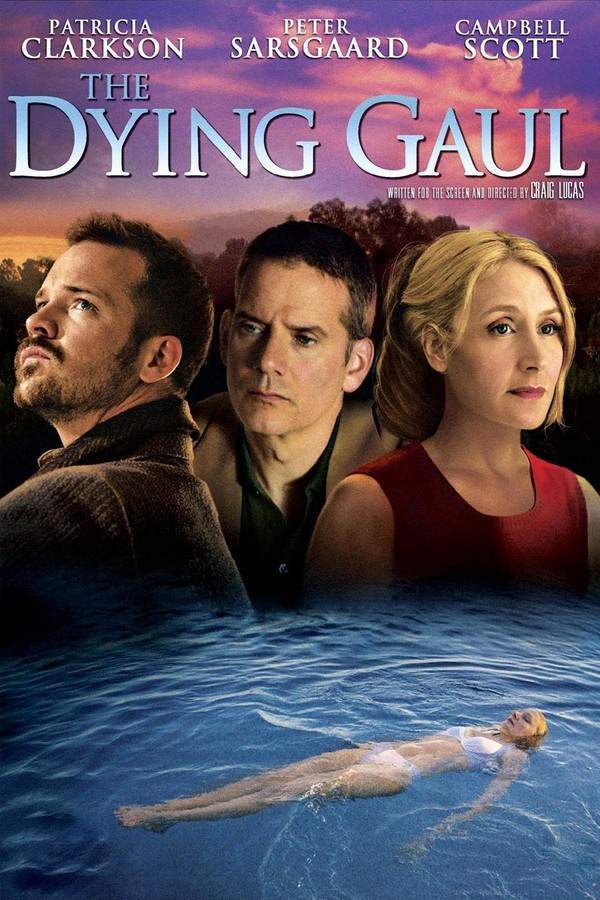
Masculine Feminine 1966
Directed by

Jean-Luc Godard
Made by

Royal Films International
Test your knowledge of Masculine Feminine with our quiz!
Masculine Feminine Plot Summary
Read the complete plot summary and ending explained for Masculine Feminine (1966). From turning points to emotional moments, uncover what really happened and why it matters.
Paul, a young idealist recently discharged from military service, embarks on a search for employment. While at a café, he encounters Madeleine Zimmer, a young singer aspiring to record her music. Their day takes a dark turn when they witness a heated argument between a woman and her partner, which escalates to the point where the woman pulls out a gun and fatally shoots him. Following this shocking incident, Paul meets up with his friend Robert Packard, a journalist who persuades him to sign a petition advocating for the release of several artists and writers in Rio de Janeiro who have been accused of opposing state policies.
As Paul secures a job at a magazine, he has an awkward confrontation with Madeleine in a bathroom, where he expresses his hope for an outing that evening. However, she challenges his notion of “going out,” leaving him speechless, and reveals that her earlier promise was insincere. With the French presidential election of December 1965 approaching, Paul turns 21 and finds himself increasingly drawn to Madeleine. She introduces him to her roommate, Elisabeth Choquet, and they also connect with Catherine-Isabelle, whom Robert is infatuated with. Paul joins Robert in pasting posters around Paris and expresses his protest against the Vietnam War by painting “Peace in Vietnam” alongside a U.S. Army vehicle.
Madeleine is gearing up for the release of her debut single under RCA Records. On the big day, Paul takes her to their café, intending to propose, but Madeleine, preoccupied with the release, postpones the conversation about their future. He records a heartfelt message for her in a coin-operated booth, only to be approached by a man who unexpectedly stabs himself. During a visit to a laundromat, Paul shares his unsettling sense of being followed with Robert, who, engrossed in a newspaper, passionately discusses folk singer Bob Dylan, whom he refers to as a “Vietnik.”
Life takes a turn as Paul moves in with Madeleine, Elisabeth, and Catherine, ultimately leaving his magazine job to work as a pollster for IFOP. He interviews a young woman named Elsa, broaching subjects that include politics, romantic relationships, and contraception. In a candid moment at the café, Paul informs Elisabeth of Madeleine’s pregnancy, although she expresses skepticism about the news. They later have an unexpected encounter with the woman who shot her partner, now involved in sex work, and witness a theatre director directing an actress. The group then attends a cinema where Madeleine professes her love to Paul. Excited yet compelled to act, Paul steps out to spray-paint an anti-Charles de Gaulle slogan on a nearby wall, prompting insights from Robert regarding the revolutionary role of workers.
A shocking event occurs when a man borrows matches from Paul, only to use them in a self-immolation act, leaving behind a haunting message that reads “Peace in Vietnam.” Paul and Catherine visit Madeleine in the recording studio during her latest session, but she appears emotionally detached. After an encounter with a reporter, Madeleine requests Paul to get a car on her behalf. Embodying a military general’s persona, Paul demands a car from the war ministry, and they depart together.
As the months pass from January to March 1966, Paul persists in conducting opinion polls focused on politics and relationships. However, he comes to realize that his subjectivity impacted the sincerity of the responses he received. At a police station, Catherine recounts an incident where Paul is said to have purchased an upscale apartment. Tensions rise as Madeleine expresses a desire to have Elisabeth move in with them, a proposal that Paul firmly opposes. Ultimately, reports indicate that Paul may have fallen from a window, raising questions among those close to him about whether it was an accident or suicide. Meanwhile, a pregnant Madeleine faces uncertainty about her future path as she speaks with authorities.
Masculine Feminine Timeline
Follow the complete movie timeline of Masculine Feminine (1966) with every major event in chronological order. Great for understanding complex plots and story progression.
Paul's Search for Employment
Recently discharged from military service, Paul embarks on a quest to find a job. His journey begins while visiting a café, igniting the events that will intertwine his fate with those of others.
Meeting Madeleine Zimmer
At the café, Paul encounters Madeleine, an aspiring singer eager to record her music. Their brief interaction establishes a bond that deepens as they navigate the complexities of life.
Witnessing Violence
Paul and Madeleine's day takes a tragic turn when they witness an argument that escalates dangerously. A woman pulls out a gun and fatally shoots her partner, leaving Paul traumatized by the event.
Signing the Petition
After the shocking incident, Paul meets up with his friend Robert, a journalist. Robert convinces Paul to sign a petition aimed at releasing artists and writers in Rio de Janeiro who have been wrongfully accused.
Awkward Confrontation with Madeleine
At the magazine where Paul secures employment, he has an awkward encounter with Madeleine in the bathroom. Their conversation highlights the disconnect in their budding relationship, leaving Paul at a loss for words.
Paul's 21st Birthday
As the French presidential election looms in December 1965, Paul turns 21. He finds himself increasingly drawn to Madeleine amidst the political unrest surrounding them.
Posters and Protests
Paul joins Robert in pasting protest posters around Paris, expressing his discontent with the Vietnam War. His passion culminates in him spray-painting 'Peace in Vietnam' on a U.S. Army vehicle, showcasing his commitment to activism.
Madeleine's Debut Single
Madeleine prepares for the release of her debut single with RCA Records. On the big day, Paul intends to propose but is met with her preoccupation with the release, leading to missed opportunities.
Paul's Sense of Paranoia
During a laundromat visit, Paul confides in Robert about feeling followed. Engrossed in discussing folk singer Bob Dylan, Robert's perspective gives Paul a sense of camaraderie amidst his confusion.
Moving in Together
Paul moves in with Madeleine, Elisabeth, and Catherine, leaving his job at the magazine. This transition marks a significant shift in his personal life as he adapts to new challenges and relationships.
Interviewing Elsa
In his new role as a pollster for IFOP, Paul interviews a young woman named Elsa. Their conversation touches on politics, relationships, and contraception, revealing the societal issues affecting their generation.
Madeleine's Pregnancy
In a candid moment at the café, Paul reveals to Elisabeth that Madeleine is pregnant. Elisabeth's skepticism creates tension, complicating Paul's emotions as he navigates impending parenthood.
Encounter with the Shooter
Paul and his friends have an unexpected encounter with the woman who shot her partner. Now involved in sex work, she offers a stark reminder of the violent world around them, adding to their shared experiences.
The Self-Immolation
A shocking event unfolds when a man borrows matches from Paul, only to immolate himself as a protest. His haunting message about peace resonates deeply with Paul, catalyzing further introspection.
Paul's Mysterious Fall
Reports suggest that Paul may have fallen from a window, raising suspicions regarding the circumstances. His friends and loved ones grapple with the ambiguity of whether it was an accident or a deliberate act.
Masculine Feminine Characters
Explore all characters from Masculine Feminine (1966). Get detailed profiles with their roles, arcs, and key relationships explained.
Paul
Paul is a young idealist grappling with his recent military discharge and the demands of adulthood. He is driven by a desire for meaningful connections yet often finds himself conflicted between personal aspirations and societal expectations. His evolving relationship with Madeleine illustrates his journey toward understanding love and responsibility.
Madeleine Zimmer
Madeleine is an ambitious singer determined to make a name for herself in the music industry. Her focus on her career and personal aspirations sometimes overshadows her relationship with Paul, leading to moments of tension and misunderstanding. Her emotional complexity adds depth to her character, reflecting the struggle of balancing love and ambition.
Robert Packard
Robert is a journalist whose passion for political discourse brings a sense of activism to the group. He influences Paul's decisions and serves as a friend and mentor figure. His dedication to discussing art and politics underscores the theme of intellectual engagement during tumultuous times.
Masculine Feminine Settings
Learn where and when Masculine Feminine (1966) takes place. Explore the film’s settings, era, and how they shape the narrative.
Time period
December 1965 to March 1966
This period was marked by significant political upheaval and activism, particularly surrounding the Vietnam War. The French presidential election adds another layer of tension as youth grapple with their ideals and societal expectations. This time frame captures the essence of youthful disillusionment and revolutionary spirit.
Location
Paris, Rio de Janeiro
The movie is set primarily in Paris, a vibrant city known for its rich history, art, and culture. Known as the city of love, Paris serves as the backdrop for the characters' personal and political struggles. A brief connection to Rio de Janeiro highlights the international political tensions of the time.
Masculine Feminine Themes
Discover the main themes in Masculine Feminine (1966). Analyze the deeper meanings, emotional layers, and social commentary behind the film.
🕊️
Peace
The theme of peace is central to the narrative, particularly through Paul's protests against the Vietnam War. His actions, including painting slogans and engaging in political conversations, reflect a generational desire for change. The repeated motifs of violence, such as shootings and self-immolation, starkly contrast with the ideals of peace.
💔
Love
The complicated love story between Paul and Madeleine demonstrates the tumultuous nature of young relationships amid external pressures. Their interactions reveal the contradictions of love and ambition, as Madeleine's professional pursuits often clash with Paul's personal desires. This theme emphasizes how love can be both uplifting and challenging in times of uncertainty.
🎭
Identity
Identity is explored through Paul’s evolving sense of self in a rapidly changing world. His military background contrasts sharply with his aspirations as a journalist and pollster, highlighting the tension between personal beliefs and societal roles. The characters navigate their identities in relation to contemporary politics and their personal relationships.

Coming soon on iOS and Android
The Plot Explained Mobile App
From blockbusters to hidden gems — dive into movie stories anytime, anywhere. Save your favorites, discover plots faster, and never miss a twist again.
Sign up to be the first to know when we launch. Your email stays private — always.
Masculine Feminine Spoiler-Free Summary
Discover the spoiler-free summary of Masculine Feminine (1966). Get a concise overview without any spoilers.
In the restless streets of mid‑sixties Paris, a city humming with political debate, artistic experimentation, and the ever‑present buzz of commercial promise, everyday life feels like a series of choices poised between idealism and compromise. The atmosphere is charged yet intimate, with cafés and billboards serving as backdrops for conversations that drift from poetry to protest, from love to the looming shadow of a changing world.
Paul arrives fresh from military service, carrying a quiet conviction that the world should be shaped by truth rather than profit. He wanders through the city’s cultural crossroads, searching for work that will honor his principles while wrestling with the seductive allure of easier, more material comforts. His observations are tinged with the skepticism of a young adult trying to reconcile his dreams with the pragmatic demands of adulthood.
When he meets Madeleine, a luminous pop‑singer on the cusp of fame, their connection becomes a focal point for both characters’ lingering doubts and aspirations. She embodies the glittering promise of success, yet beneath the surface lies a yearning for authenticity that mirrors Paul’s own inner conflict. Their circle expands to include Robert, an eager journalist, Elisabeth, a thoughtful roommate, and Catherine, whose presence adds another layer of emotional complexity. Together they navigate a Paris that feels simultaneously intimate and turbulent, where art, politics, and personal relationships intertwine.
The film moves with a lyrical, slightly disquieting rhythm, capturing the yearning of a generation caught between revolutionary fervor and the seductive pull of consumer culture. It asks quietly whether love and ambition can coexist without sacrificing one’s sense of self, leaving viewers to ponder the delicate balance between dreaming big and staying grounded in a world that rarely offers simple answers.
Can’t find your movie? Request a summary here.
Movies with Similar Twists and Themes
Uncover films that echo the narrative beats, emotional arcs, or dramatic twists of the one you're exploring. These recommendations are handpicked based on story depth, thematic resonance, and spoiler-worthy moments — perfect for fans who crave more of the same intrigue.
Featured on this page

What's After the Movie?
Not sure whether to stay after the credits? Find out!
Explore Our Movie Platform
New Movie Releases (2025)
Famous Movie Actors
Top Film Production Studios
Movie Plot Summaries & Endings
Major Movie Awards & Winners
Best Concert Films & Music Documentaries
Movie Collections and Curated Lists
© 2025 What's After the Movie. All rights reserved.









